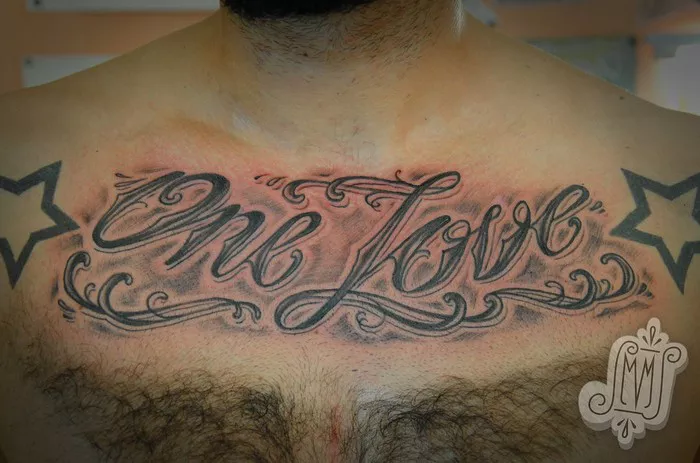Tattoos have become a ubiquitous form of self-expression in modern society, with millions of people worldwide adorning their bodies with inked designs ranging from intricate artwork to meaningful symbols. However, for some individuals, particularly those with religious beliefs rooted in Christianity, the decision to get a tattoo raises questions about its compatibility with their faith. Central to this debate are interpretations of specific Bible verses that some argue condemn the practice of marking one’s body with ink. This article delves into the theological and historical contexts surrounding these verses, aiming to provide a comprehensive understanding of what the Bible says about tattoos and whether they are deemed wrong according to Christian teachings.
Understanding the Historical and Cultural Context
To comprehensively grasp the biblical perspective on tattoos, it’s essential to consider the historical and cultural milieu in which the scriptures were written. The books of the Bible were penned over millennia by various authors, each influenced by their cultural norms, societal practices, and religious beliefs of their time. Old Testament texts, in particular, often reflect the customs and laws of ancient Israelites, which differ significantly from contemporary Western culture.
In Leviticus 19:28, a verse frequently cited in discussions about tattoos, the commandment states, “Do not cut your bodies for the dead or put tattoo marks on yourselves. I am the LORD.” This prohibition is situated within a broader set of laws known as the Holiness Code, which governed various aspects of Israelite life, including religious rituals, moral conduct, and societal practices. The verse appears to condemn the practice of tattooing in the context of pagan mourning rituals and idolatrous practices prevalent among neighboring nations.
Interpreting Leviticus 19:28
The interpretation of Leviticus 19:28 hinges on understanding its original intent and application. Some argue that this prohibition against tattoos is specific to the cultural and religious practices of ancient Israel and does not necessarily extend to contemporary Christian beliefs. They contend that since Christians are no longer bound by the ceremonial and ritualistic laws of the Old Testament, including dietary restrictions and sacrificial offerings, the prohibition against tattoos may similarly be considered obsolete.
Others maintain that while Christians are indeed released from certain aspects of the Mosaic Law through the teachings of Jesus Christ and the New Testament, the moral principles underlying these laws, such as principles against idolatry and honoring God with one’s body, remain relevant. They argue that tattooing may still be discouraged based on these moral principles, even if not explicitly forbidden.
Exploring New Testament Perspectives
In considering the Christian perspective on tattoos, it is crucial to examine whether the New Testament offers any additional insights or guidelines. While the New Testament does not explicitly mention tattoos, several passages emphasize principles that could inform Christian views on body modification and self-expression.
For instance, 1 Corinthians 6:19-20 states, “Do you not know that your bodies are temples of the Holy Spirit, who is in you, whom you have received from God? You are not your own; you were bought at a price. Therefore honor God with your bodies.” This passage underscores the sanctity of the human body as a dwelling place of the Holy Spirit and encourages believers to honor God with their bodies in all aspects of life, including decisions regarding physical adornment.
Applying Biblical Principles Today
The application of biblical principles to contemporary issues such as tattoos requires careful discernment and consideration. While the Bible provides foundational principles for ethical decision-making, it does not always offer explicit directives for every modern-day dilemma. Therefore, Christians often rely on principles of discernment, prayer, and community to navigate complex issues like tattoos.
See Also: What Is the Meaning of Tattoo in the Bible?
Some Christians may choose to abstain from getting tattoos as a personal conviction rooted in their interpretation of biblical teachings on honoring God with their bodies and avoiding practices with potential pagan or idolatrous associations. Others may view tattoos as a form of artistic expression that, when done with thoughtful consideration and respect for biblical principles, does not contradict their faith.
Conclusion
In conclusion, the question of whether tattoos are wrong according to the Bible is a nuanced issue that requires careful examination of both Old and New Testament teachings, as well as thoughtful consideration of historical, cultural, and theological contexts. While Leviticus 19:28 provides a clear prohibition against tattoos within the specific context of ancient Israelite culture, the interpretation and application of this verse vary among Christians today.
Ultimately, Christians are called to honor God with their bodies, whether through their actions, words, or physical appearance. For some, this may mean refraining from tattoos out of reverence for biblical principles and cultural contexts. For others, tattoos may be viewed as a matter of personal conscience and artistic expression, provided they align with overarching biblical teachings on morality, love, and respect for oneself and others.
As with any issue of faith and practice, Christians are encouraged to seek wisdom, pray for discernment, and engage in respectful dialogue with others who may hold differing views. By doing so, believers can navigate the complexities of modern life while remaining grounded in their faith and commitment to honoring God in all they do.

